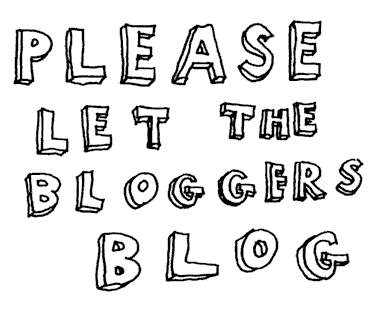Last Updated on July 20, 2020 by John Prendergast
Why We Write

Before you learn to hack your way into better finance writing, let me ask you a question, why do we write (or for most of us, blog)? I’ve talked about this several times on The Scalable Advisor, and it may be worth going back to Content Strategy, How Not To Have a Sucky Blog, and even Writing For Blueleaf (for tips on voice).
We write to improve our businesses. We want to build an audience, create engagement and social traction, demonstrate expertise, to capture leads… I could go on and on. But the purpose underlying it all is that we write to build an audience. Everything else flows from that.
That may be the most obvious thing I have ever written, but I’ll reiterate: business writing is meant to be read by as many people as possible.
And what’s the best way to get more readers, Captain Obvious? WRITE BETTER.
3 #Advisorhacks For Better Finance Writing
So the goal is to improve your business, the strategy is to write great content, the objective is to get more readers, the execution is to write better, and the tactics (hacks) to writing better are…
1.) Read wide and learn: Psychology, human behavior, mathematics, science, technology, marketing: there are a LOT of skills to master on the path to becoming the best financial advisor you can be. Read outside of the finance industry. How do you think I got the idea for #FinSci? If you’re only reading Michael Kitces, Josh Brown, and Carl Richards–as wonderful as they are–you’re just not reading widely enough. Branch out a bit, read Brain Pickings, Fast Company, and PSFK. Learn something new and get inspired; it WILL help you write better and more creatively. Here’s an interesting bit on learning (from Psychology Today, no less) that justifies my Become A Better Writer By Being A Better Reader Slash Learner theory. Obviousness alert:
Interleaving [to divide (memory or processing power) between a number of tasks by allocating successive segments of it to each task in turn] forces you to make nearly imperceptible steps forward with many skills. But over time, the sum of these small steps is much greater than the sum of the leaps you would have taken if you’d spent the same amount of time mastering each skill in its turn. Bjork explains that successful interleaving allows you to “seat” each skill among the others: “If information is studied so that it can be interpreted in relation to other things in memory, learning is much more powerful,” he says.
2.) Write more, fail hard: “The cost of being wrong is less than the cost of doing nothing.” Seth Godin said that in his book, Poke The Box, and he’s right. It’s human nature to be afraid of failure, but once you do fail not only do you realize it isn’t the worst thing in the world, you also learn from the failure–and get better because of it. Remember what Yoda said? He said, “Do or do not, there is no try.” So the second hack to becoming a better writer is to write and write and write. Inevitably, some of your posts will fail. Nobody will read them. You may even get a nasty comment or two. Whatever. Lesson learned. On to the next one. Having trouble with writer’s block? Try uber-optimist Terry Starbucker‘s advice:
Walk away from the computer. It just ain’t meant to be…
[When I do blog] I try to tap into my current stream. So I draw off of that – what is going on with me right now? What’s rockin’ my world? What’s making me happy right now? What did I learn today? What songs are playing inside my head?
3.) Be more interesting: The third hack to better writing is to write better… by being more interesting. Reading and learning will help you be more interesting. Writing more will help you be more interesting. The point is that interestingness is not innate, it is not a raw talent; you can get better at it. Here are a few tips on how to be interesting from Copyblogger with a few of my own thrown in there (mine in italics): “Be right. Be Wrong. Do something… Then blog about it. Make outlandish cultural references. Make people laugh. Draw Weird Connections. Be startlingly honest. Be irreverent.” Finally, you may want to become a more interesting person as a means to being a more interesting writer. Consider the following tip from @FAKEGRIMLOCK‘S epic guest post, Minimum Viable Personality, keeping in mind that your advisory business is the “product”:

Now go forth and write better! You have my blessing.
And subscribe please!